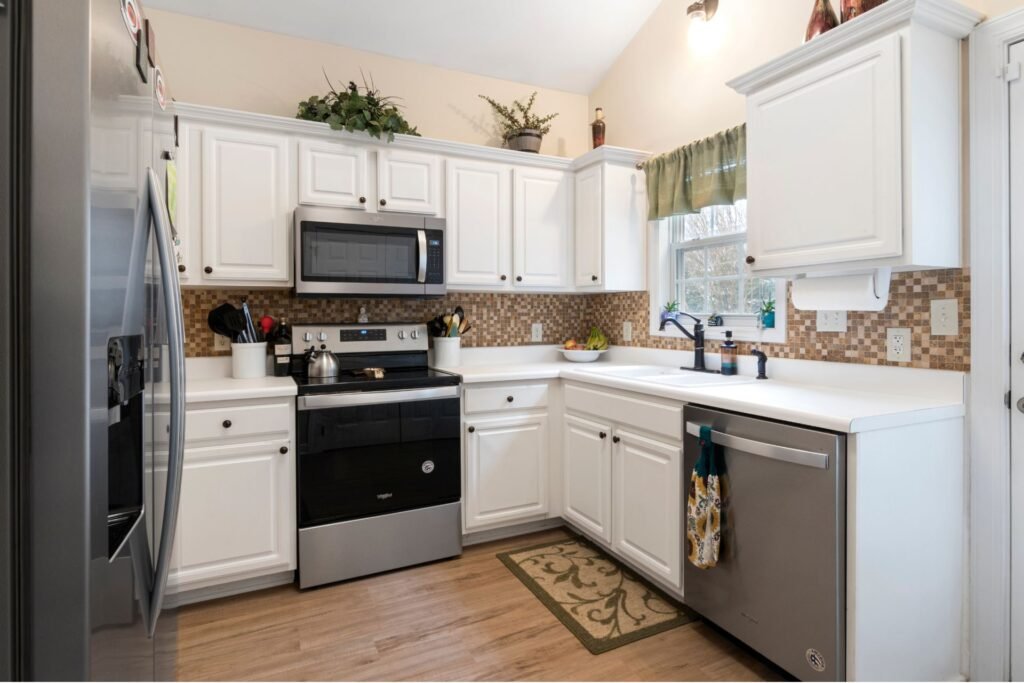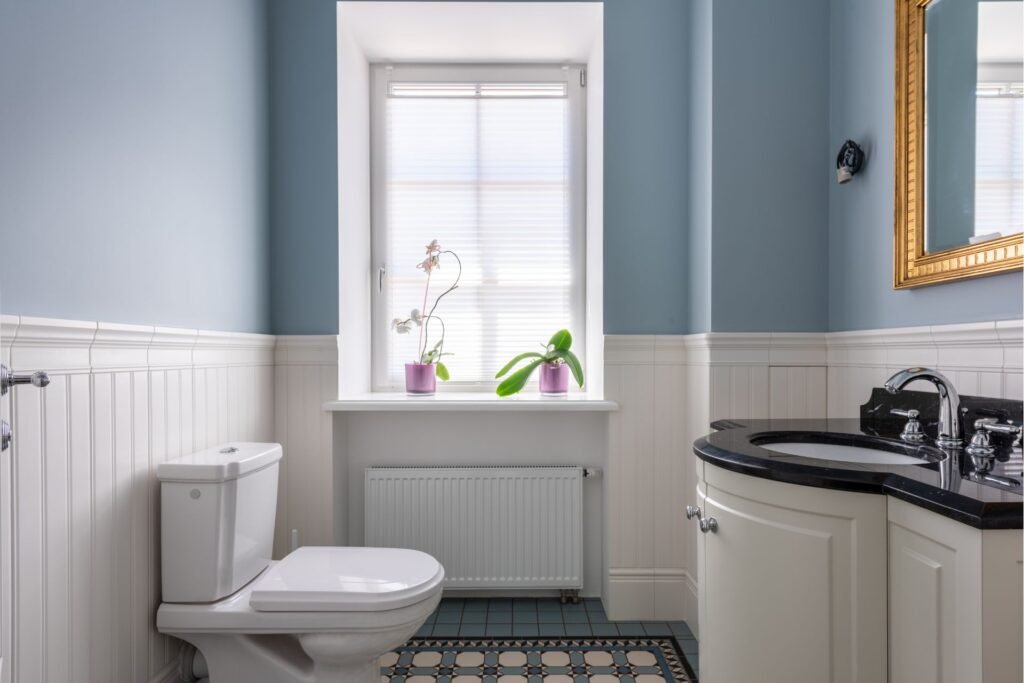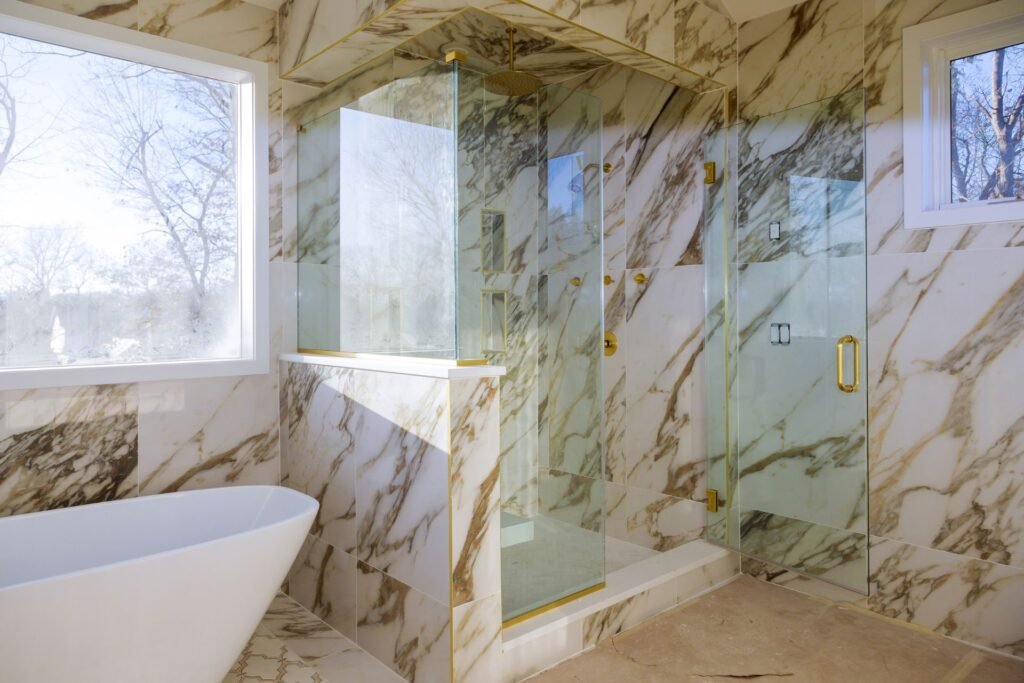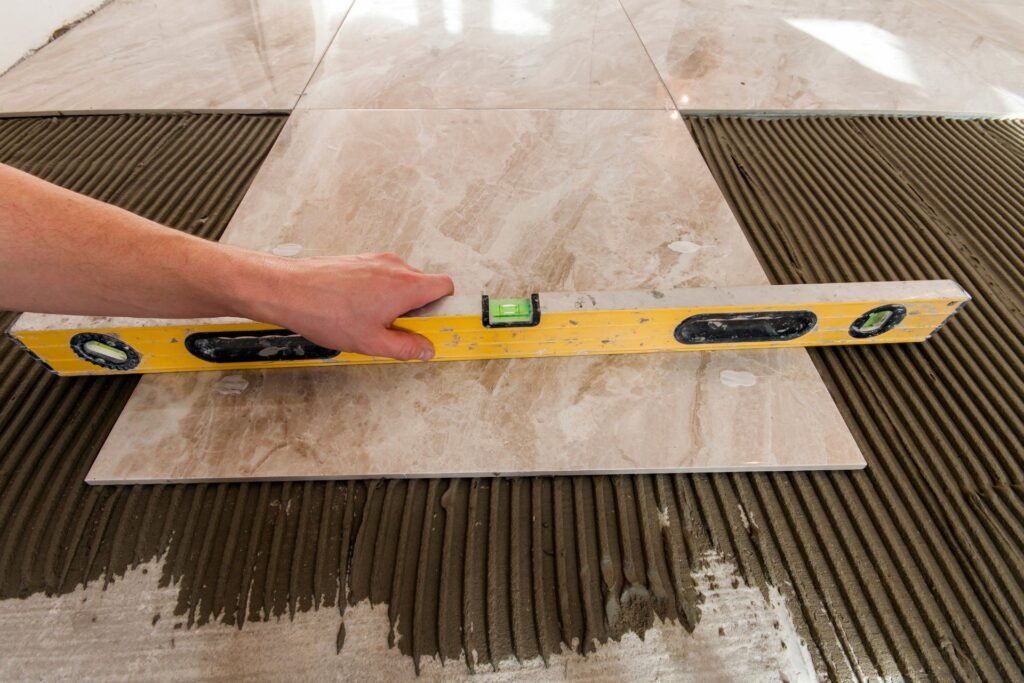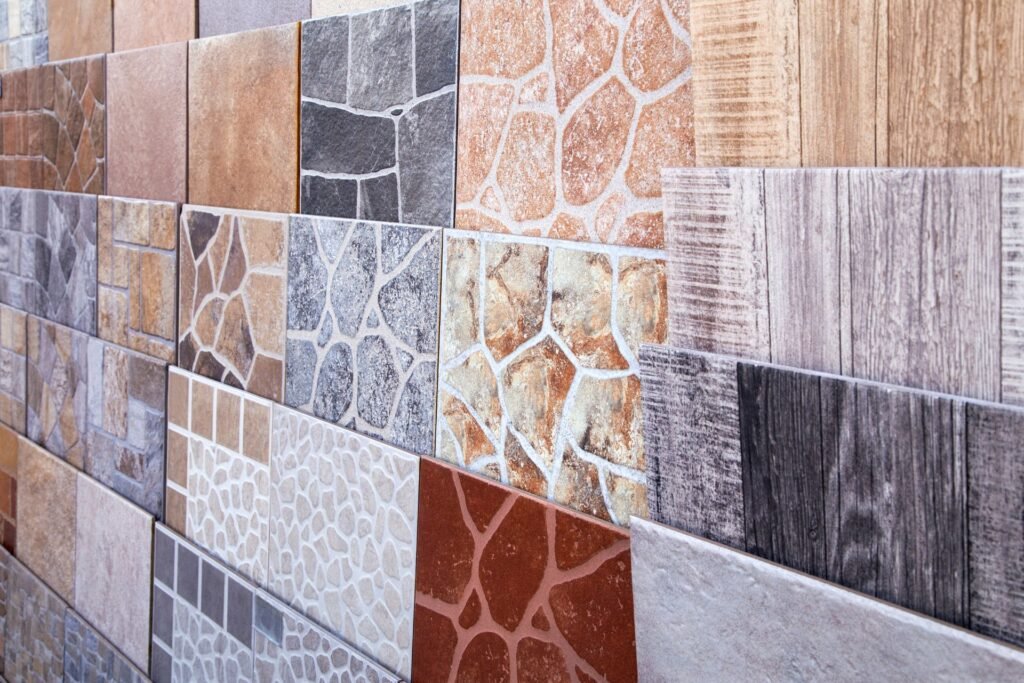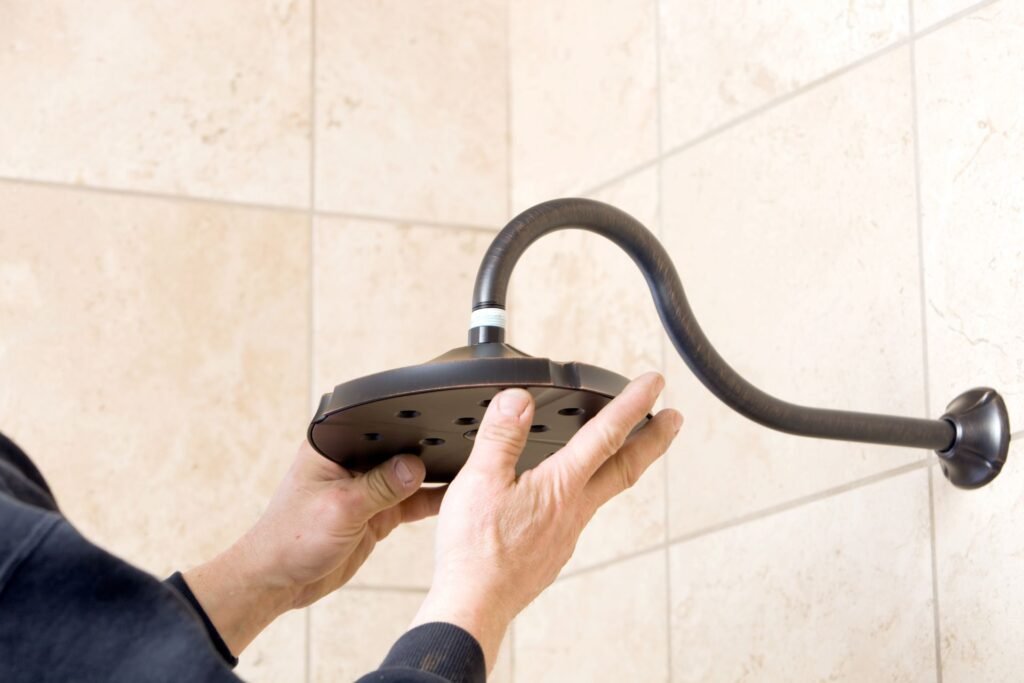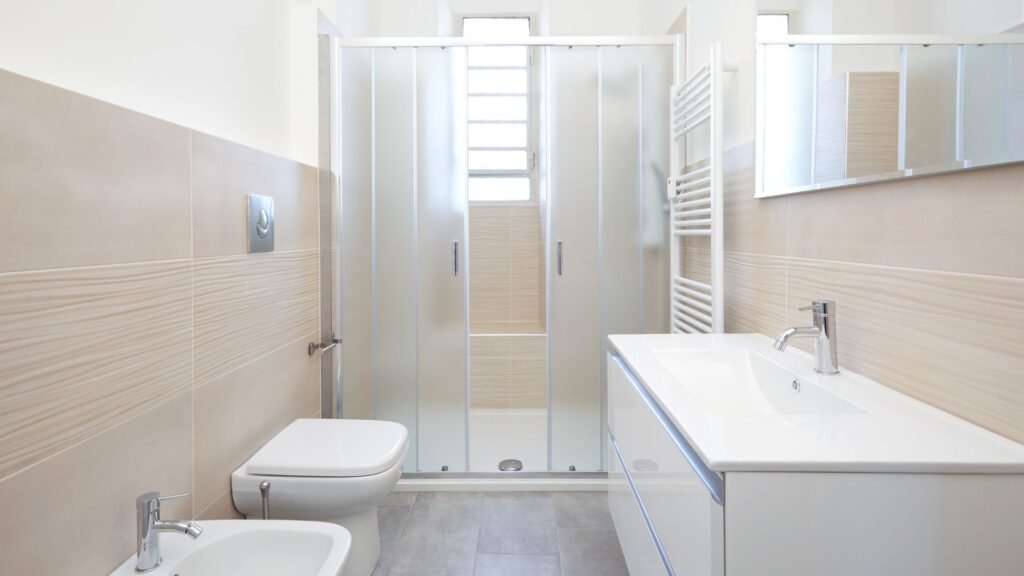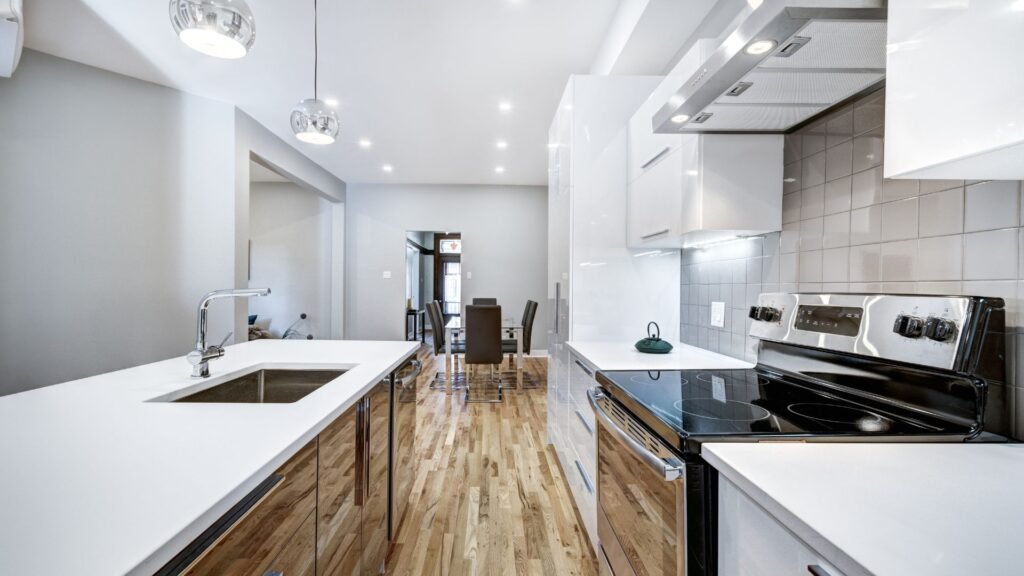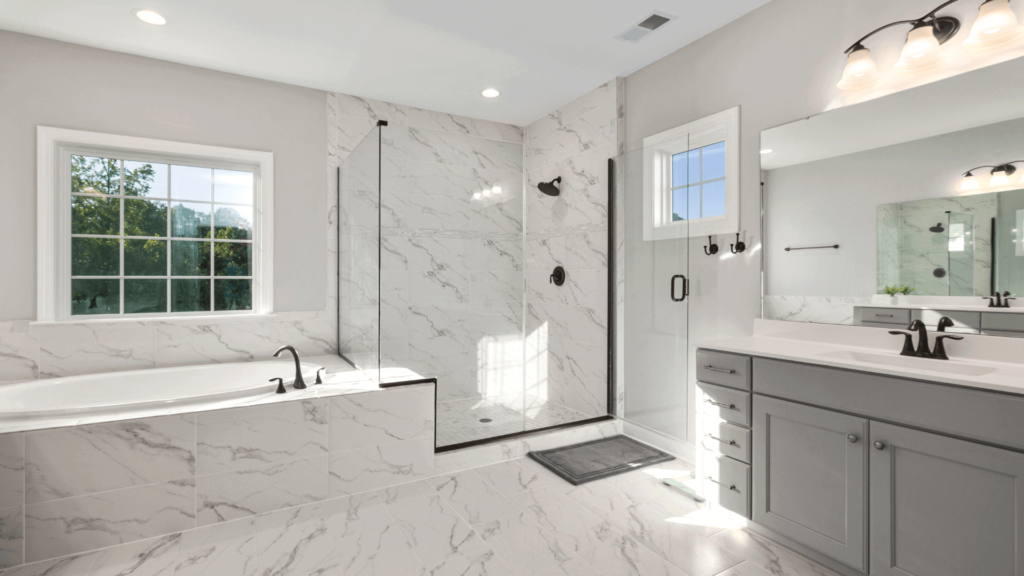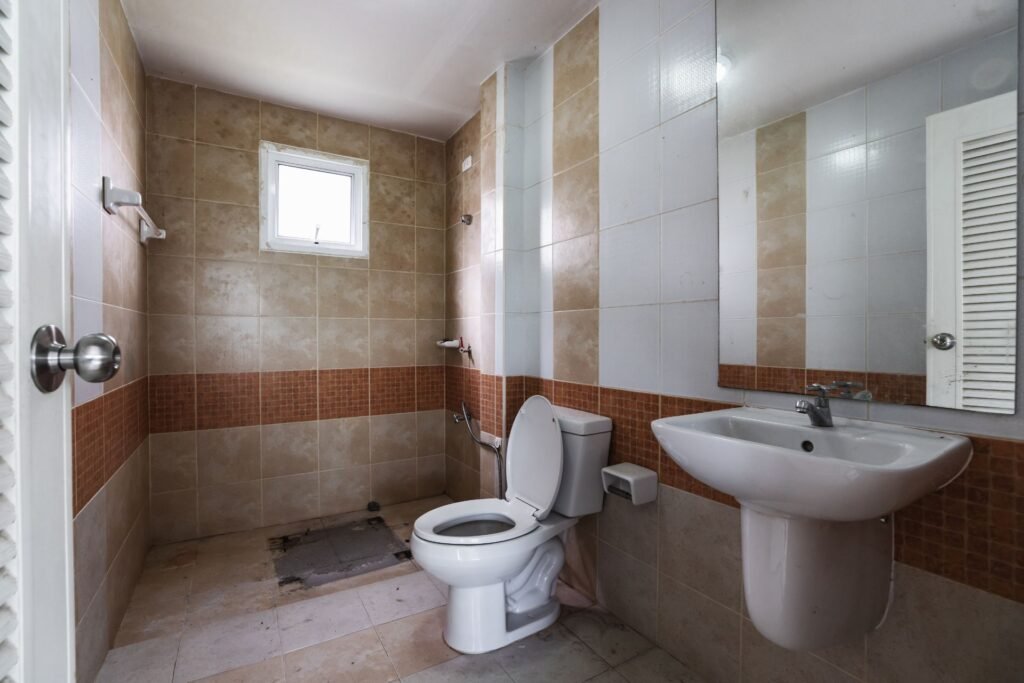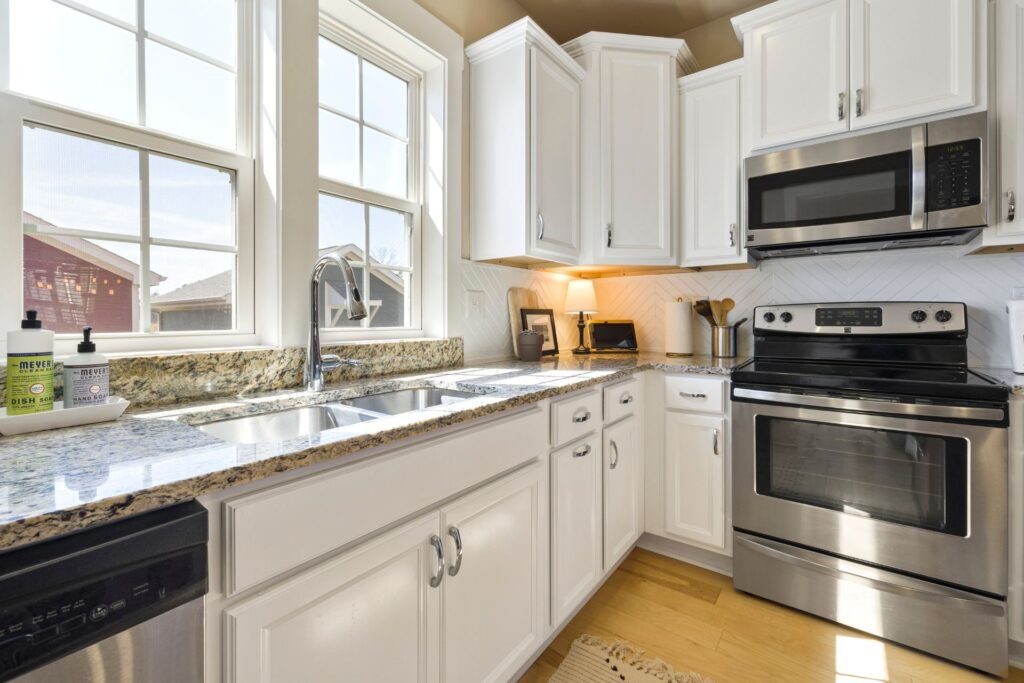Welcome to your ultimate guide on understanding the cost of home renovations in New Zealand. Whether you’re planning a kitchen remodel, bathroom upgrade, or a full home renovation, knowing what to expect in terms of cost is essential. Renovating can be an exciting yet daunting experience, with prices ranging widely based on factors like the scope of work, materials, and even your location. In this blog, we’ll break down all the key aspects that influence the cost of home renovations in NZ, helping you budget smartly and turn your vision into reality without unexpected financial surprises.
On average, the cost of home renovations in New Zealand can range from $100,000 to $400,000 or more, depending on the scale of the project, materials used, and location. Smaller renovations like bathroom or kitchen updates can start from $15,000, while full-scale home renovations with premium finishes can exceed $400,000.
- Factors Affecting The Cost Of Home Renovations In NZ
- Typical Cost Breakdown For Home Renovations In NZ
- Cost Variations By Location In NZ
- Hidden Costs To Consider
- Financing Your Home Renovation
- Cost-Saving Tips For Home Renovations
- Examples Of Home Renovation Projects In NZ
- When To Consider Hiring A Renovation Project Manager
- FAQs: About The Cost Of Home Renovations NZ
- Conclusion
Factors Affecting The Cost Of Home Renovations In NZ
Renovating a home in New Zealand can be a significant investment, and various factors come into play when determining the total cost. By understanding these factors, homeowners can plan more effectively, anticipate costs, and prioritize what matters most. Let’s break down the key influences that shape the overall cost of home renovations in New Zealand.
Scope of Work
The scope of work is one of the most important aspects influencing renovation costs. Essentially, the larger and more complex the project, the higher the cost will be. For example, a minor renovation such as painting walls, upgrading fixtures, or installing new flooring will naturally cost less than a full-scale structural overhaul. Full renovations may involve tearing down walls, reconfiguring layouts, or addressing foundational issues tasks that require more time, labor, and materials.
A homeowner must first assess whether they’re looking for cosmetic changes, which typically include painting, refinishing, or adding new features, or structural renovations that may involve significant changes to the building’s framework. A small kitchen refresh or bathroom makeover is often manageable in terms of both cost and timeline, whereas adding a second story or extending the home requires far more extensive planning, labor, and expense.
Type of Renovation
The type of renovation also plays a large role in determining the final cost. Below are some of the most common types of home renovations in New Zealand and how they affect the overall budget:
- Kitchen Renovations: Kitchens are often the heart of the home and tend to involve multiple tradespeople, from electricians and plumbers to cabinetmakers and tilers. Costs will vary depending on the level of customization, the quality of appliances, and the materials used. High-end kitchen remodels with premium finishes can run significantly higher than simpler updates.
- Bathroom Renovations: Bathrooms are another key area of the home that homeowners often target for renovations. Bathroom renovations often involve plumbing and waterproofing work, which can drive up the costs. The size of the bathroom, the quality of fittings, and whether you are adding new fixtures such as a bathtub or a separate shower area can significantly impact the price.
- Extensions or Additions: Adding an extra room, a garage, or even a second story will typically be one of the most expensive renovation projects. This type of work involves structural considerations, council permits, and a host of tradespeople, including builders, plumbers, and electricians.
- Full Home Renovations or Remodeling: A full home renovation is a large-scale project that can encompass multiple rooms or even the entire property. These projects often require not just cosmetic updates but also potential reconfiguration of the home’s layout, and updating electrical systems, plumbing, and other utilities. Given the extensive work required, the costs can be substantial, but the results are often transformative.
Materials Used
The choice of materials will have a profound impact on the overall cost of a renovation. Materials can be categorized as high-end, mid-range, or budget, and your selection will depend on your preferences and budget. High-end materials, such as imported stone countertops, custom cabinetry, or premium timber flooring, can quickly drive up costs. Mid-range materials offer a balance between quality and price, while budget materials focus on affordability without necessarily sacrificing functionality.
In New Zealand, the availability of local materials can also influence the price. For instance, choosing locally sourced materials such as native timber may be more cost-effective than importing expensive alternatives. Homeowners must weigh the benefits of investing in higher-quality materials against their budget constraints. However, higher-end materials may provide better durability and long-term value, reducing the need for future replacements or repairs.
Labor Costs
Labor costs are another significant factor that varies depending on the complexity of the project, the qualifications of the professionals involved, and the region in which the work is taking place. In New Zealand, labor costs can fluctuate widely between regions, with urban areas such as Auckland or Wellington generally commanding higher rates than more rural regions.
The professionals involved also impact costs. Highly skilled tradespeople such as architects, builders, electricians, and plumbers come at a premium, but their expertise is essential for ensuring quality and compliance with New Zealand’s building standards. Hiring qualified professionals is particularly important when dealing with structural work, electrical systems, or plumbing installations, where safety and longevity are key considerations.
Homeowners need to understand that labor costs can also be influenced by the length of the project, the number of professionals required, and whether the renovation involves after-hours or weekend work, which can incur additional fees.
Permits and Regulations
In New Zealand, renovation projects often require building consent and compliance with local regulations, particularly if structural changes are being made. Whether you’re building an extension, converting a space, or making changes to the electrical or plumbing systems, obtaining the necessary permits is essential for legal compliance and ensuring the safety of the home.
The cost of permits and consents can vary depending on the nature of the project, the location, and the local council’s requirements. Failing to obtain the appropriate consent can result in hefty fines and may create problems if you decide to sell the home in the future. Therefore, it’s important to factor these expenses into your renovation budget.
Additionally, working with professionals who are well-versed in New Zealand’s building codes can help ensure that your renovation meets all regulatory standards. This not only protects your investment but also contributes to the long-term value of your home.
In summary, the cost of home renovations in New Zealand is influenced by various factors, including the scope of work, the type of renovation, the materials used, labor costs, and the need for permits and consents. By carefully considering these factors, homeowners can better plan their renovations, manage their budget, and ensure that they achieve the results they desire without surprises.

Typical Cost Breakdown For Home Renovations In NZ
When considering a home renovation project in New Zealand, it’s essential to understand the typical costs involved, which vary based on the scope of the renovation and the quality of materials used. Whether you’re updating a single room like the kitchen or bathroom or undergoing a full home transformation, being aware of these cost ranges will help you plan your budget more effectively. Below, we break down the costs into categories for kitchen renovations, bathroom renovations, and full home renovations to provide a clearer picture of what to expect.
Kitchen Renovation Costs
Kitchen renovations are often one of the most impactful upgrades you can make in your home, not just for aesthetics but also for functionality and resale value. In New Zealand, the cost of a kitchen renovation can vary widely depending on factors such as the size of the kitchen, the materials you choose, and the complexity of the design. Here’s a typical cost breakdown:
- Basic Kitchen Renovation ($15,000 – $30,000): A basic kitchen renovation usually involves updating essential elements such as cabinetry, countertops, and appliances without making significant structural changes. Expect standard materials like laminate countertops and pre-fabricated cabinets in this price range. This option is ideal if you’re working within a tight budget but still want to give your kitchen a fresh, modern look.
- Mid-range Kitchen Renovation ($30,000 – $60,000): For a mid-range renovation, you can expect higher-quality materials such as engineered stone countertops, custom cabinetry, and upgraded appliances. This range may also include some layout changes, like moving the sink or stove to improve functionality. Mid-range renovations strike a balance between style and cost, offering more customization without veering into high-end territory.
- High-end Kitchen Renovation ($60,000+): High-end renovations are for homeowners who want premium materials and custom designs. This can include luxury appliances, natural stone countertops, bespoke cabinetry, and potentially even structural changes like knocking down walls to create an open-plan space. The sky’s the limit with a high-end renovation, but the cost will reflect the level of detail and quality involved.
Bathroom Renovation Costs
Bathroom renovations are another area where costs can vary significantly depending on your preferences and the extent of the work required. Whether you’re updating a small guest bathroom or completely overhauling a master ensuite, here’s what you can expect in terms of costs:
- Basic Bathroom Renovation ($10,000 – $25,000): A basic bathroom renovation typically includes updating fixtures, installing a new vanity or basin, retiling, and possibly replacing the shower or bathtub. In this price range, expect cost-effective materials like ceramic tiles and standard fixtures. This option is great for giving your bathroom a refresh without breaking the bank.
- Mid-range Bathroom Renovation ($25,000 – $50,000): In the mid-range, you’ll have more room for customization. This might involve using higher-quality tiles, adding underfloor heating, installing a frameless shower, or upgrading to a more luxurious bathtub. Mid-range renovations can also allow for minor layout adjustments to improve the overall functionality of the space.
- High-end Bathroom Renovation ($50,000+): High-end bathroom renovations are all about luxury and customization. Think marble or natural stone tiles, high-end fixtures, custom-built vanities, and luxury features like steam showers or freestanding baths. If you’re looking to create a spa-like experience at home, a high-end renovation will provide that – but it comes with a premium price tag.
Full Home Renovation Costs
A full home renovation is a significant investment and can transform your living space entirely. The costs for such a project will vary depending on the size of your home, the extent of the renovation, and the quality of materials used. Here’s a typical breakdown for full home renovations in New Zealand:
- Budget-friendly Full Home Renovation ($100,000 – $200,000): A budget-friendly renovation will cover the basics, such as repainting, updating flooring, and making minor adjustments to the kitchen and bathroom. This option is ideal for homeowners looking to refresh their living space without undertaking extensive structural changes or using premium materials.
- Mid-range Full Home Renovation ($200,000 – $400,000): For a mid-range renovation, you can expect more substantial updates, including a complete overhaul of key areas like the kitchen and bathrooms, potential layout changes, and the use of higher-quality materials. This price range might also cover additional features like upgrading windows and doors or improving energy efficiency with insulation and heating systems.
- Premium Full Home Renovation ($400,000+): A premium renovation is a top-to-bottom transformation of your home, often including structural changes such as extending the house or altering the floor plan. Premium renovations typically involve custom designs, high-end materials, and luxury finishes throughout the home. This is the option for homeowners who want to create their dream living space, with no expense spared.
In conclusion, understanding the typical cost breakdown for home renovations in New Zealand can help you make informed decisions as you plan your project. Whether you’re focused on updating a single room or transforming your entire home, having a clear idea of the budget ranges will ensure you set realistic expectations and stay within your financial limits. Keep in mind that these costs can fluctuate based on your location, the contractors you choose, and any unexpected issues that may arise during the renovation process.

Cost Variations By Location In NZ
When it comes to home renovations in New Zealand, one of the key factors that can significantly affect your budget is location. The cost of renovating a home in different regions varies due to factors like demand, local labor availability, material sourcing, and even the nature of the properties being renovated. Here’s a breakdown of what to expect in some of New Zealand’s key areas:
Auckland: Higher Costs Due to Demand and Real Estate Prices
Auckland is the largest city in New Zealand and the epicenter of economic activity, which naturally drives up the costs of home renovations. The city’s high demand for housing, coupled with skyrocketing real estate prices, means that renovation costs in Auckland are among the highest in the country. Not only is labor more expensive, but the price of materials can also be higher due to the competitive market. Contractors are often busy with multiple projects, leading to increased lead times and sometimes higher fees to secure their services. For homeowners looking to renovate in Auckland, it’s crucial to budget for these added costs and to plan well in advance to secure reputable professionals.
Wellington: Mid-Range Costs with Unique Challenges for Older Homes
Wellington, New Zealand’s capital, typically has mid-range renovation costs compared to other major cities. However, this can vary depending on the type of home being renovated. Wellington is known for its older, often historic homes, which present unique challenges when it comes to renovation. Many of these homes may require specialized work, such as earthquake strengthening, retrofitting for modern insulation, or addressing wear and tear that comes from decades of exposure to the elements. While labor and material costs might not reach the heights of Auckland, the complexities of working with older structures can add unforeseen expenses. It’s important for Wellington homeowners to carefully assess the condition of their property before embarking on a renovation.
Christchurch: Lower Costs with a Focus on Post-Earthquake Renovations
In Christchurch, renovation costs tend to be lower than in Auckland and Wellington, largely due to the city’s more affordable real estate market. However, Christchurch homeowners have faced unique challenges following the earthquakes in the early 2010s. Many homes in the area require structural repairs or retrofitting to meet updated building codes, which can drive up renovation costs, especially if foundational work is needed. That said, the overall demand for renovations in Christchurch is not as intense as in Auckland, which means that labor and materials are more readily available at lower prices. For those rebuilding or upgrading their homes post-earthquake, working with contractors familiar with earthquake-prone areas is essential to ensure the home meets modern safety standards.
Rural Areas: Lower Labor Costs with Potential Material Sourcing Challenges
If you’re renovating a home in a rural part of New Zealand, you’re likely to encounter lower labor costs compared to the country’s larger cities. Tradespeople in rural areas typically charge less than their urban counterparts, and the overall cost of living tends to be lower. However, one of the main challenges rural homeowners face is sourcing materials. Depending on the location, certain building materials may need to be transported from urban centers, which can increase costs and lead to delays. Additionally, finding specialized tradespeople for certain aspects of the renovation, such as electricians or plumbers, may be more difficult in remote areas. Rural homeowners need to factor in these logistical challenges when budgeting for their renovation.
Location plays a critical role in determining the cost of home renovations across New Zealand. Auckland’s high demand and real estate prices drive up costs, Wellington presents mid-range costs with the added complexity of older homes, Christchurch’s post-earthquake context brings unique considerations despite lower overall costs and rural areas offer lower labor costs but challenges in material sourcing. Understanding these regional variations is key to effectively budgeting and planning your renovation project.

Hidden Costs To Consider
When planning a renovation, the budget might look clear at first, but hidden costs can sneak up on you and increase expenses. Addressing these costs upfront will help ensure you’re not caught off guard and can complete your project smoothly. Let’s explore some of the common hidden costs you should keep in mind:
Unexpected Repairs
One of the most common hidden costs during a renovation is dealing with unexpected repairs. For example, you may discover underlying structural issues once walls or floors are removed. These problems can range from foundation cracks to termite damage, all of which require immediate attention before proceeding with any new work. Similarly, older homes often come with outdated electrical systems that may need rewiring to meet current standards. Faulty plumbing is another culprit, sometimes requiring complete pipe replacements if leaks or corrosion are found. While it’s impossible to predict every issue, adding a buffer in your budget for unexpected repairs can prevent these surprises from derailing your renovation timeline and finances.
Building Consent and Compliance Costs
Renovation projects often require building consents, which come with associated fees and potential delays. Depending on the scope of your project, you might need to submit plans for approval to your local council, and this process can take longer than anticipated. There are also inspection costs to ensure the work complies with building codes and regulations. These compliance costs are critical to avoid fines or being forced to undo and redo non-compliant work. For larger projects, legal requirements may necessitate consultation with an architect or engineer, further adding to the bill. Planning for these fees and factoring in the time it may take to gain approvals will help keep your renovation on track.
Living Arrangements During Renovation
Another hidden cost that is often overlooked is the potential need for temporary living arrangements. Depending on the scale of your renovation, your home may become uninhabitable for some time. This means you might need to rent a place to live or stay in a hotel, which can quickly add up. There’s also the consideration of storage fees for furniture and belongings that may need to be moved out of the renovation area. If your renovation is extensive, you’ll also need to budget for these additional living costs until your home is ready to move back into. Factoring in this expense early on will prevent financial strain later in the project.
Waste Disposal
Renovations produce a significant amount of waste, and proper disposal comes with a price tag. From demolition materials to leftover building supplies, waste must be collected, transported, and disposed of in compliance with local regulations. This could involve hiring a skip bin, paying for specialized removal services, or even making trips to the local landfill, each of which has its fees. There might also be additional costs if hazardous materials like asbestos are found and need to be safely removed. Overlooking the cost of waste disposal can eat into your renovation budget, so it’s essential to allocate funds for this aspect of the project from the start.
By understanding these potential hidden costs, you can better prepare for your renovation and reduce the likelihood of going over budget. Incorporating a contingency fund of around 10-20% of your total project cost is a smart move to account for the unexpected. This proactive approach will ensure you’re financially ready for any surprises that arise along the way, helping you achieve your renovation goals without unnecessary stress or delays.

Financing Your Home Renovation
When planning a home renovation, one of the first questions that comes up is how to finance it. Deciding between saving up or borrowing can have a significant impact on your renovation timeline and long-term financial health. Understanding the various options available, including loans and potential government assistance, can help you make an informed decision that aligns with your goals.
Saving Up vs. Borrowing
The decision to either save up for your renovation or borrow money comes with distinct advantages and disadvantages, depending on your financial situation and renovation urgency.
- Saving Up: Opting to save for your renovation ensures you avoid taking on debt, which is a huge advantage if you’re financially conservative. Without the pressure of loan repayments or interest, you can renovate at your own pace. However, the downside is that saving takes time, and your dream renovation might be delayed for months or even years. During that time, inflation could drive up the cost of materials and labor, meaning you may end up paying more in the long run.
- Borrowing: Taking out a loan allows you to start your renovation sooner rather than later, which can be crucial if your home requires urgent updates. Borrowing gives you access to a lump sum that lets you complete your renovation all at once, potentially saving money on long-term costs. However, loans come with interest, which can add to the overall cost of your renovation. It also means committing to monthly repayments, which can impact your financial flexibility.
When choosing between saving and borrowing, it’s essential to weigh the urgency of your renovation needs against your ability to take on additional financial responsibilities. For many homeowners, a combination of the two might work best, saving a portion upfront and borrowing the rest.
Home Renovation Loans
For those who decide that borrowing is the best option, a variety of home renovation loans are available. In New Zealand, banks and other financial institutions offer specific loans designed to help homeowners finance improvements.
- Bank Loans for Renovations: Home renovation loans are structured similarly to traditional home loans, but they’re tailored for smaller, project-specific amounts. You’ll typically see fixed or variable interest rates, and the terms can range from a few years to decades, depending on the loan amount and lender policies. When considering a renovation loan, it’s crucial to look at the interest rates, as even a small difference in percentage points can significantly affect the total amount you’ll repay. Loan terms, such as repayment periods and early repayment penalties, should also be factored in.
- Secured vs. Unsecured Loans: Homeowners may choose between secured and unsecured loans for renovations. Secured loans require you to use your home as collateral, usually resulting in lower interest rates but with the risk of losing your property if you default. Unsecured loans, on the other hand, don’t require collateral, but their interest rates tend to be higher, reflecting the increased risk to lenders.
Before committing to a renovation loan, ensure you have a clear budget for your renovation and have taken into account potential cost overruns. It’s also wise to shop around for loan offers, as interest rates and terms can vary significantly between lenders.
Government Grants and Subsidies
New Zealand offers several government grants and subsidies that can help ease the financial burden of home renovations, particularly if your project involves energy efficiency improvements or making your home more environmentally sustainable.
- Energy Efficiency Programs: Homeowners in New Zealand may qualify for government grants to improve the energy efficiency of their homes. For instance, the Warmer Kiwi Homes Program offers subsidies for insulation and heating solutions, which can reduce energy costs and increase comfort. These grants can cover a substantial portion of your renovation costs, making energy-efficient upgrades a smart financial move.
- Home Improvement Grants: In addition to energy-related incentives, other grants may be available for specific home improvement projects, particularly for lower-income families or those living in specific areas. These grants typically target essential renovations, such as repairing structural damage or upgrading outdated infrastructure.
- Eligibility Requirements: It’s important to review the eligibility requirements for these programs before planning your renovation. In most cases, eligibility is based on income, location, and the type of improvements being made. Be sure to check with the appropriate government agencies or local authorities to confirm what assistance may be available for your project.
By taking advantage of these programs, you could significantly reduce the out-of-pocket costs associated with your renovation, making it a more financially feasible project.
Whether you’re financing your renovation through savings, loans, or government grants, each option comes with its own set of advantages and challenges. By carefully evaluating your financial situation, the scope of your renovation, and the available funding options, you can choose the right approach to bring your home renovation dreams to life.

Cost-Saving Tips For Home Renovations
Prioritize Your Renovation Goals
When working with a limited budget, it’s crucial to prioritize renovation projects that will give you the most bang for your buck. Typically, the kitchen and bathroom are considered high-impact areas that can significantly increase your home’s value. By focusing on these rooms, you can achieve a substantial transformation without overextending your budget. To get the most out of your renovation, create a list of your goals and rank them by importance. Ask yourself what changes will make the biggest difference to your daily life or increase your home’s value the most. Prioritizing these key areas ensures that your money is well spent on what truly matters.
DIY vs. Hiring Professionals
While DIY can seem like a tempting way to save money during a home renovation, it’s important to assess which tasks are realistically within your skill set. Small projects like painting, installing shelves, or replacing fixtures can often be completed by an enthusiastic DIYer with minimal cost. However, for more complex tasks such as electrical work, plumbing, or structural changes, hiring a licensed professional is the safest and often most cost-effective choice in the long run. Mistakes made during DIY projects can lead to costly repairs, safety hazards, and delays. A balance of DIY for simpler tasks and professional help for specialized work will keep your renovation on track while managing expenses.
Recycling and Repurposing Materials
One often overlooked way to cut costs on a renovation is by recycling and repurposing materials. Salvaging wood, hardware, tiles, or even furniture can drastically reduce the amount you need to spend on new materials. Look for second-hand building materials from sources like salvage yards, online marketplaces, or dedicated recycling stores. Reusing items that still have life in them not only cuts down on costs but also adds a unique, personalized touch to your renovation. For instance, you could turn old doors into a custom table or repurpose wooden pallets into shelving. These creative approaches not only reduce waste but also give your home character while keeping costs in check.
Get Multiple Quotes
Getting multiple quotes from contractors is an essential step in saving money on home renovations. Prices can vary significantly between companies, and comparing at least three quotes ensures you get the best value for your budget. Be wary of contractors who offer extremely low prices, as this may result in poor workmanship or the use of subpar materials. Instead, look for a balance between competitive pricing and quality. By taking the time to compare quotes, you can find a contractor who meets your budget without compromising on the standards of your renovation. Additionally, this process gives you room to negotiate and ask for price matches, ensuring that you’re getting the best possible deal.

Examples Of Home Renovation Projects In NZ
When considering a home renovation, the scope of work, the finishes chosen, and the project budget can greatly impact the final result. To help provide clarity and insight into what different budgets can achieve, we’ve compiled three real-world case studies of home renovation projects in New Zealand. These examples illustrate how various levels of investment can transform a home and meet specific homeowner goals.
Case Study 1: Budget-Friendly Renovation
Project Budget: $150,000
For homeowners working within a tight budget, focusing on cosmetic upgrades and energy efficiency improvements can deliver a refreshed look and increased comfort without breaking the bank. In this particular case study, the renovation centered around giving the home a modern facelift while also making it more energy-efficient.
The project included repainting the interior and exterior of the home, replacing old carpets with affordable laminate flooring, and updating light fixtures to more contemporary designs. Additionally, the homeowner invested in energy-efficient upgrades, such as installing double-glazed windows, adding insulation in key areas and replacing outdated appliances with Energy Star-rated models.
These relatively simple improvements not only updated the home’s aesthetics but also reduced ongoing energy costs, making the renovation a smart long-term investment. The project stayed within the $150,000 budget by carefully selecting materials and finishes that balanced cost and durability while still achieving a fresh and modern look.
Case Study 2: Mid-Range Renovation
Project Budget: $250,000
For homeowners with a bit more flexibility in their budget, a mid-range renovation can tackle larger areas of the home, such as kitchens and bathrooms, while also incorporating higher-quality finishes and materials.
In this case study, the $250,000 project included a complete kitchen remodel, a bathroom renovation, new flooring throughout the home, and the installation of modern fixtures. The kitchen was transformed with new cabinetry, stone countertops, stainless steel appliances, and an open-plan layout that enhanced both the functionality and aesthetics of the space. In the bathroom, the old fixtures were replaced with modern, water-saving models, and the outdated shower and tub were swapped for sleek, tiled walk-in showers.
The flooring throughout the home was replaced with a mix of hardwood and high-quality carpet, giving the living spaces a warm and cohesive feel. In addition to the visible upgrades, the homeowner invested in underfloor heating in key areas, adding both comfort and value to the property.
This mid-range renovation struck a balance between style and practicality, significantly improving the overall feel of the home while maintaining a reasonable budget.
Case Study 3: High-End Renovation
Project Budget: $500,000+
For those with a more substantial budget, a high-end renovation can completely transform a home, often including luxury finishes, custom designs, and significant structural changes. In this case study, the homeowners invested over $500,000 in a full-scale renovation that included both high-end finishes and an extension to the property.
The renovation involved a complete reconfiguration of the interior layout to create more open living spaces, improve natural light, and accommodate modern living requirements. Luxury materials, such as imported stone countertops, bespoke cabinetry, and hardwood flooring, were used throughout the home to create a timeless and elegant aesthetic.
The project also included an extension to the property, adding bedroom, a home office, and a larger living area. This not only increased the home’s livable space but also significantly boosted its market value.
On top of the aesthetic upgrades, the renovation incorporated smart home technology, with automated lighting, heating, and security systems. The homeowners also opted for top-of-the-line appliances and custom-built features such as a walk-in pantry, a large outdoor entertaining area, and a landscaped garden.
This high-end renovation resulted in a stunning transformation, combining luxury and functionality to create a dream home that catered to every aspect of the homeowner’s lifestyle.
Each of these case studies demonstrates how different renovation budgets can be allocated to achieve various goals. Whether you’re looking to make cost-effective upgrades, modernize key areas, or completely reimagine your living space, planning, and budgeting carefully can help you get the most out of your renovation project.

When To Consider Hiring A Renovation Project Manager
When tackling a renovation project, one of the most important decisions you can make is whether or not to hire a project manager. The role of a project manager can be pivotal, particularly for larger or more complex renovations. Below, we explore the key benefits of hiring a renovation project manager, as well as the associated costs, to help you determine if this option is right for your situation.
Benefits of Hiring a Project Manager
Renovations are notorious for their ability to cause stress, delays, and unexpected complications. This is where a skilled renovation project manager can make a significant difference. Here are some of the main benefits:
- Time Savings: Managing a renovation project on your own can be extremely time-consuming, especially if you’re working full-time or managing other responsibilities. A project manager takes on the burden of day-to-day coordination, allowing you to continue focusing on your personal or professional life. They oversee timelines, ensure that work is progressing as planned, and troubleshoot issues on the fly. With their expertise, they can anticipate potential delays and take preventive measures to keep the project on schedule.
- Coordination of Trades: Renovation projects often involve a variety of tradespeople plumbers, electricians, builders, painters, and more. Juggling the schedules and requirements of these different professionals can be daunting, particularly if you don’t have experience in construction or renovation. A project manager takes over this task, ensuring that the right people are on-site at the right times and that work proceeds in a logical, efficient sequence. This helps prevent miscommunications and costly mistakes.
- Overall Project Quality: One of the key advantages of hiring a renovation project manager is the assurance of quality. These professionals have the experience and knowledge to ensure that every aspect of the renovation is carried out to a high standard. They know what to look for in terms of craftsmanship and can quickly spot any subpar work. Their oversight helps to ensure that the finished product meets your expectations and adheres to building codes and regulations.
Costs of Project Management
While hiring a renovation project manager comes with clear benefits, it’s essential to understand the costs involved. These costs can vary depending on the size and complexity of your renovation, as well as the specific project manager you hire.
- What to Expect in Terms of Fees: Project managers typically charge fees in one of two ways: as a percentage of the total project cost or as a flat fee. The percentage model is more common and usually ranges from 5% to 15% of the overall renovation budget. For example, if your renovation project is estimated to cost $100,000, you could expect to pay between $5,000 and $15,000 for project management services. If the project is particularly large or complex, or if the manager’s role is more extensive, their fee may be higher.
- Reducing Stress and Mistakes: Although the upfront cost of hiring a project manager may seem high, it’s important to consider the potential savings in terms of reduced stress and minimized mistakes. Renovation mistakes can be extremely costly and time-consuming to fix. A project manager’s oversight can help prevent these mistakes from occurring in the first place by ensuring that everything is done correctly the first time. This, in turn, can save you money in the long run. Furthermore, the reduction in personal stress is a major benefit that many homeowners find to be well worth the investment. Knowing that a professional is handling the details allows you to focus on enjoying the renovation process rather than worrying about every small decision.
In conclusion, hiring a renovation project manager can offer substantial benefits, particularly for larger, more complex projects. While the cost of project management services can be significant, the advantages in terms of time savings, trade coordination, and overall quality often outweigh the expense. By entrusting your renovation to a professional, you can enjoy a smoother, more efficient process and avoid many of the common pitfalls associated with managing a renovation on your own.

FAQs: About The Cost Of Home Renovations NZ
Conclusion
Embarking on a home renovation project requires careful planning, budgeting, and a clear prioritization of tasks to ensure everything runs smoothly and within budget. By taking the time to establish a detailed plan with realistic expectations, homeowners can avoid unexpected costs and delays. Planning allows for a more organized and stress-free renovation experience. Whether it’s a small update or a large-scale remodel, having a clear vision and a flexible budget can make all the difference. If you’re ready to take the next step, consider reaching out to a renovation expert who can guide you through the process and provide a quote that fits your specific needs and goals.
About the Author:
Mike Veail is a recognized digital marketing expert with over 6 years of experience in helping tradespeople and small businesses thrive online. A former quantity surveyor, Mike combines deep industry knowledge with hands-on expertise in SEO and Google Ads. His marketing strategies are tailored to the specific needs of the trades sector, helping businesses increase visibility and generate more leads through proven, ethical methods.
Mike has successfully partnered with numerous companies, establishing a track record of delivering measurable results. His work has been featured across various platforms that showcase his expertise in lead generation and online marketing for the trades sector.
Learn more about Mike's experience and services at https://theleadguy.online or follow him on social media:





